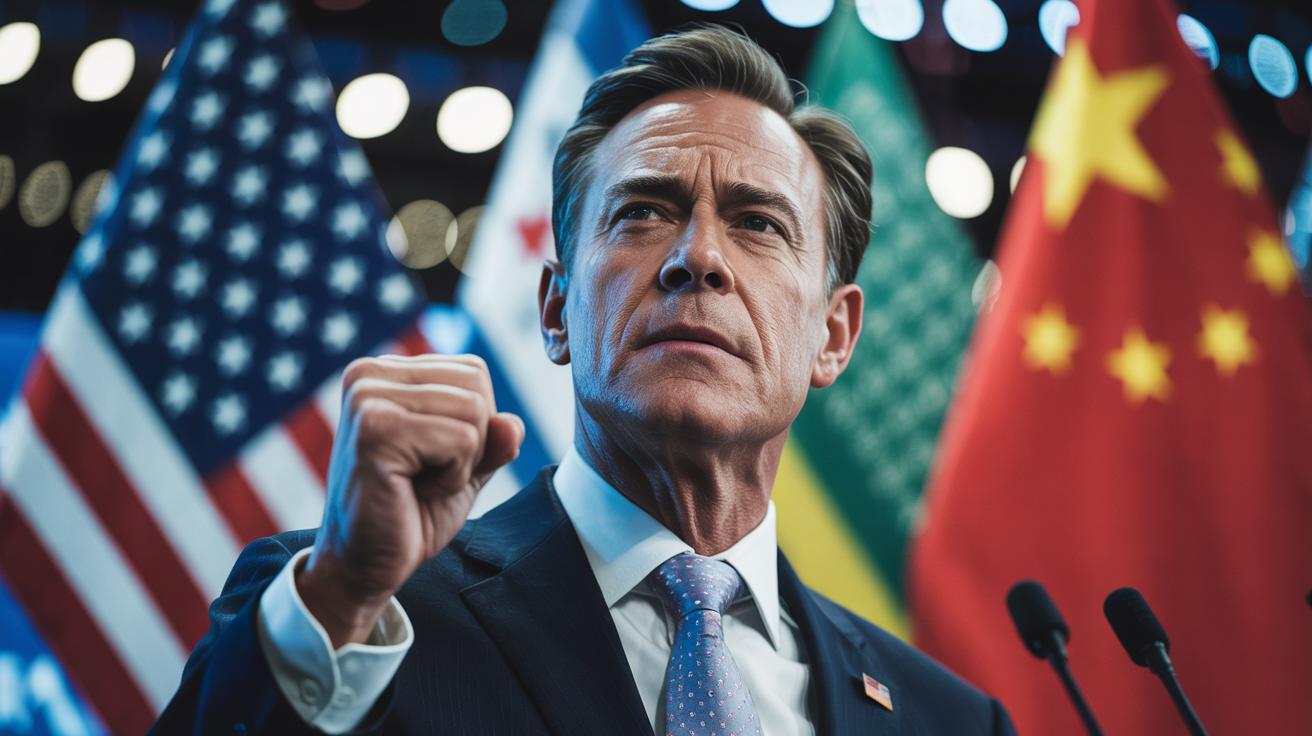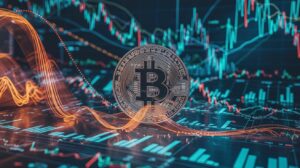What You Need to Know
- 🔍 Jamie Dimon’s Critique: JPMorgan Chase CEO Jamie Dimon has publicly dismissed President Trump’s tariff threats, suggesting they won’t sway China.
- ⚖️ Trade War Dynamics: Despite high tariffs imposed by the U.S., China remains resilient, bolstered by diversified trade relationships and strategic planning.
- 📉 Trade Deficit Focus: The U.S. aims to reduce its $295 billion trade deficit with China, yet challenges persist in achieving a sustainable resolution.
- 🔄 Temporary Tariff Deal: A short-term agreement has temporarily reduced tariffs, highlighting the urgency for a more permanent solution in trade negotiations.
- 🇺🇸 Call for U.S. Introspection: Dimon emphasizes the need for the U.S. to strengthen its internal capabilities and international alliances to effectively navigate global economic challenges.
In the ever-evolving saga of U.S.-China relations, recent comments by JPMorgan Chase CEO Jamie Dimon have stirred the pot. His assertion that China is “not scared” of President Trump’s tariff threats has raised eyebrows across the political and economic spectrum. With a trade war looming and both countries entrenched in their positions, it’s crucial to understand the dynamics at play. Dimon’s insights, shared at the Reagan National Economic Forum, highlight the complexities of this international chess game and underscore the need for strategic, calculated diplomacy. How will these tensions shape the future of global trade?
The Unyielding Stance of China
Jamie Dimon’s recent comments at the Reagan National Economic Forum shed light on China’s steadfast approach to the ongoing trade tensions with the United States. According to Dimon, China is not intimidated by U.S. tariff threats, a sentiment that resonates with their long-term strategic planning. The country has been preparing for such economic confrontations for years, investing heavily in engineering and technological advancements to cushion against external pressures. This preparation underscores their commitment to maintaining economic independence.
China’s confidence is further bolstered by its diversified trade relationships across Europe, Oceania, and other global markets. By reducing its reliance on the U.S., China has positioned itself as a formidable player on the world stage. This resilience is evident in their willingness to engage in a calculated trade war, rather than succumbing to U.S. demands. Dimon’s remarks highlight the need for the U.S. to reassess its approach and recognize China’s enduring economic fortitude.
Trump’s High-Stakes Tariff Maneuver
President Donald Trump’s aggressive tariff strategy aims to rebalance the trade deficit with China, which stood at $295 billion in 2024. By imposing tariffs of up to 145% on Chinese goods, Trump hopes to pressure China into concessions. A temporary “fast deal” has reduced these tariffs, but only for 90 days, showcasing the precarious nature of current negotiations. This short-term arrangement highlights the urgent need for a lasting solution.
Despite these efforts, Treasury Secretary Scott Bessent insists that China needs the U.S. more than the reverse. However, Chinese President Xi Jinping’s calm demeanor suggests a willingness to call Trump’s bluff. The ongoing trade war is a testament to the high-stakes nature of international diplomacy, where each side seeks the upper hand. As the clock ticks on the temporary deal, the world watches closely to see if Trump’s tactics will yield the desired outcome or if a new strategy is required.
The Economic Landscape: A Balancing Act
The trade dynamics between the U.S. and China are not just about tariffs and deficits; they reflect a broader economic balancing act. The U.S. imports a significant portion of its goods from China, with imports totaling $438.9 billion in 2024. In contrast, exports to China were just $143.5 billion, illustrating a substantial trade imbalance. This disparity has long been a point of contention for Trump, who aims to rectify it through aggressive trade policies.
Yet, Jamie Dimon’s observations suggest that the solution is not as simple as imposing tariffs. The notion that China will readily capitulate ignores their strategic resilience and economic diversification efforts. As China continues to expand its global trade network, the U.S. must reconsider its approach, focusing on strengthening domestic capabilities and fostering international alliances to effectively navigate this complex economic landscape.
Looking Inward: America’s Strategic Imperative
Jamie Dimon’s candid remarks also serve as a call to action for the United States to address its internal challenges. He emphasizes the importance of getting “our own act together,” urging America to focus on enhancing its values, capabilities, and management. This introspection is vital in an era of unprecedented global competition, where economic resilience is paramount.
The U.S. has historically thrived on its ability to adapt and innovate in the face of challenges. Dimon’s insights highlight the need for renewed focus on domestic growth and international collaboration. As the world becomes increasingly interconnected, America’s success depends on its ability to leverage its strengths while addressing its weaknesses. In this pivotal moment, the question remains: Can the U.S. rise to the occasion and redefine its role in the global economy?
As the world watches the unfolding U.S.-China trade drama, the stakes have never been higher. Jamie Dimon’s insights provide a sobering perspective on the challenges and opportunities ahead. With both nations firmly entrenched in their positions, the path forward is fraught with uncertainty. How will these tensions influence the global economic landscape, and what strategies will emerge to navigate this complex relationship? The answers to these questions will shape the future of international trade and diplomacy.
Did you like it?4.7/5 (28)






